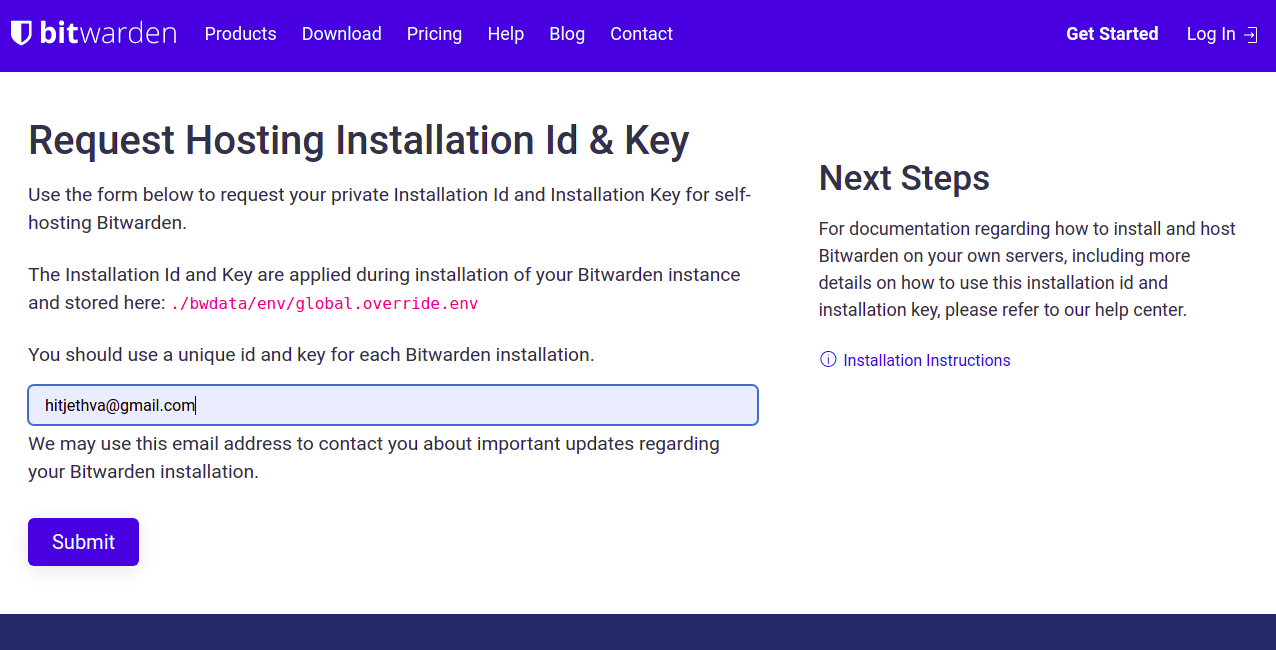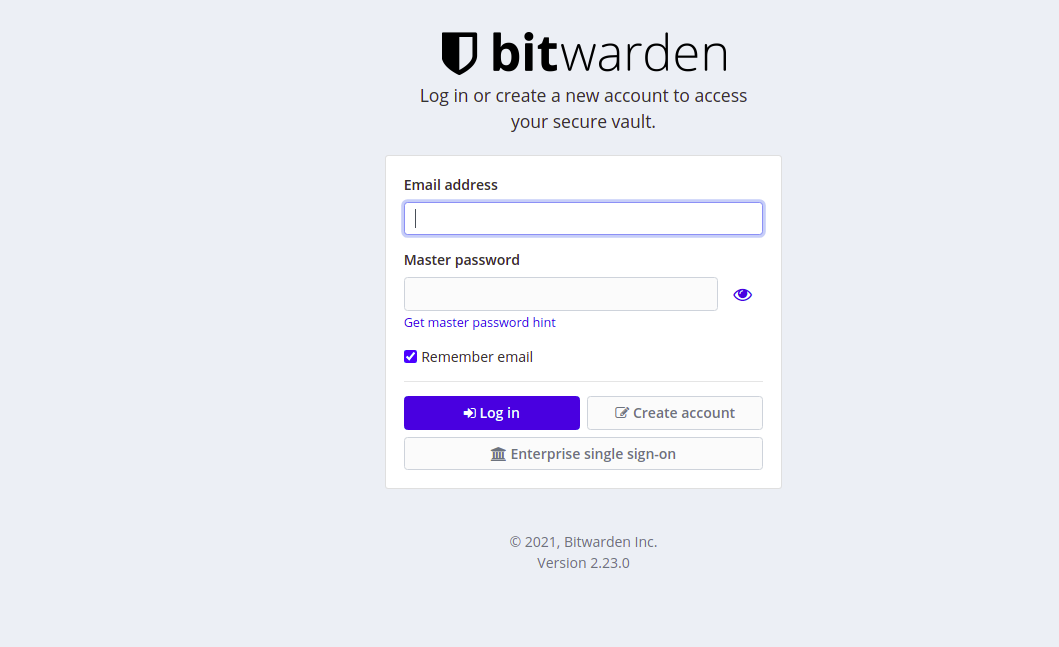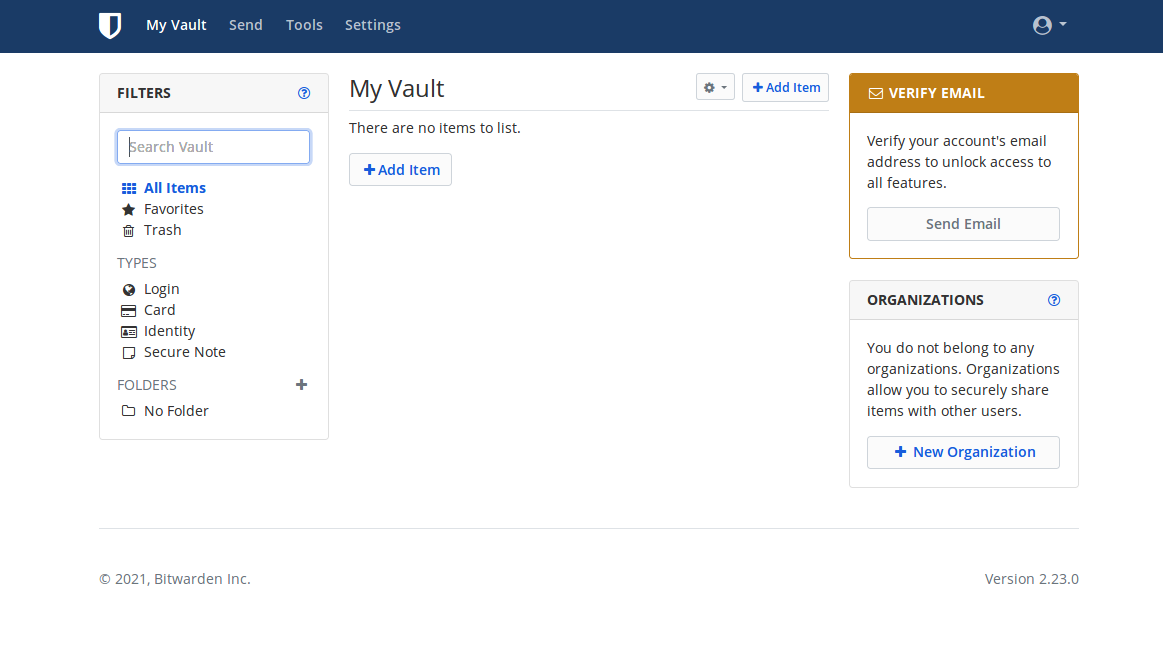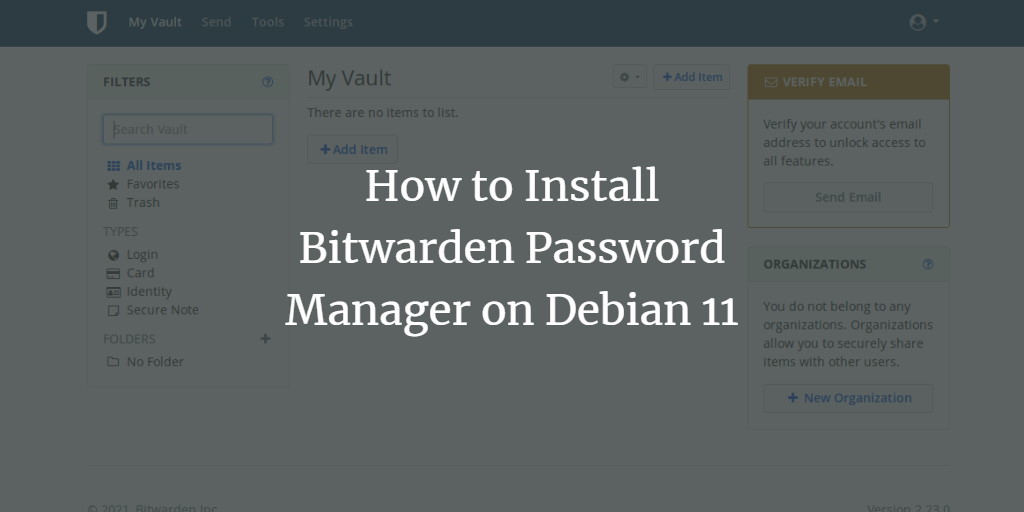Bitwarden is a free and open-source password manager that secures website credentials in an encrypted vault. It allows you to store all your login information and synchronize it across multiple devices. Designed for individuals, teams, and businesses, Bitwarden offers centralized management of credentials. The platform supports client applications for desktops, smartphones, and tablets, and provides a password generator for creating strong and secure passwords.
In this guide, we’ll walk you through the process of installing Bitwarden on Debian 11.
Prerequisites
- Ensure your server is running Debian 11.
- You must have root access or a user with sudo privileges.
Install Docker and Docker Compose
Bitwarden’s free version can be deployed using Docker. By default, the latest version of Docker is not available in the Debian 11 repository. Therefore, it requires installation from Docker’s official repository.
First, install the necessary dependencies by executing the command:
apt-get install apt-transport-https ca-certificates curl gnupg-agent software-properties-common
After installing the dependencies, retrieve and add the Docker GPG key using:
curl -fsSL https://download.docker.com/linux/debian/gpg | gpg --dearmor -o /usr/share/keyrings/docker-archive-keyring.gpg
Then, add Docker’s official repository to APT sources:
echo "deb [arch=amd64 signed-by=/usr/share/keyrings/docker-archive-keyring.gpg] https://download.docker.com/linux/debian $(lsb_release -cs) stable" | tee /etc/apt/sources.list.d/docker.list
Update APT repositories and install Docker CE:
apt-get update -y apt-get install docker-ce docker-ce-cli containerd.io -y
Verify Docker CE installation with:
docker --version
Check Docker service status using:
systemctl status docker
Next, download Docker Compose:
wget https://github.com/docker/compose/releases/download/v2.0.1/docker-compose-linux-x86_64
Move Docker Compose to the system’s executable path:
mv docker-compose-linux-x86_64 /usr/bin/docker-compose
Grant execute permissions to Docker Compose:
chmod 755 /usr/bin/docker-compose
Install Bitwarden on Debian 11
Visit the Bitwarden website and submit your email address:

After submitting, note down the installation ID and key from the next screen; these are needed later.
Download the Bitwarden installation script:
curl -Lso bitwarden.sh https://go.btwrdn.co/bw-sh
Grant execute permissions to the script:
chmod +x bitwarden.sh
Begin the installation with:
./bitwarden.sh install
You’ll be prompted for your domain or IP address and other details during installation:
(!) Enter the domain name for your Bitwarden instance (ex. bitwarden.example.com): 69.28.84.207 (!) Do you want to use Let's Encrypt to generate a free SSL certificate? (y/n): n (!) Enter the database name for your Bitwarden instance (ex. vault): vault
Enter required information to continue. Provide the installation ID and key obtained earlier:
(!) Enter your installation id (get at https://bitwarden.com/host): xxxxxxx-xxxxxx-xxxx-xxxx-xxxxxxxxxx (!) Enter your installation key: xxxxxxxxxxx (!) Do you have a SSL certificate to use? (y/n): n (!) Do you want to generate a self-signed SSL certificate? (y/n): y
Provide necessary information and press Enter. The installation concludes with:
installation complete If you need to make additional configuration changes, you can modify the settings in `./bwdata/config.yml` and then run: `./bitwarden.sh rebuild` or `./bitwarden.sh update`
Launch Bitwarden with:
./bitwarden.sh start
The system output will indicate a successful start:
Bitwarden is up and running! visit https://69.28.84.207
Access Bitwarden Web Interface
Access the Bitwarden web interface by navigating to https://your-server-ip in your web browser. You should see the following screen:

Click on Create Account to proceed, and then fill in your details: email, name, and master password. Submit the form to proceed to the Bitwarden dashboard:

Conclusion
Congratulations! You’ve successfully installed Bitwarden on Debian 11. You can now use it to manage all your credentials in one secure location. Reach out if you have any questions or require further assistance.
Frequently Asked Questions (FAQ)
- Can I use Bitwarden for free?
Yes, Bitwarden offers a free version that includes basic password management features. - What platforms does Bitwarden support?
Bitwarden supports various platforms, including Windows, macOS, Linux, iOS, and Android. - Can I use an existing SSL certificate with Bitwarden?
Yes, during installation, you can choose to use an existing SSL certificate instead of generating a self-signed one. - How do I update Bitwarden?
Update Bitwarden by running `./bitwarden.sh updateself` followed by `./bitwarden.sh update`. - Is the SSL certificate auto-renewed?
Let’s Encrypt certificates are automatically renewed. However, self-signed certificates are not; you’ll need to renew them manually.
